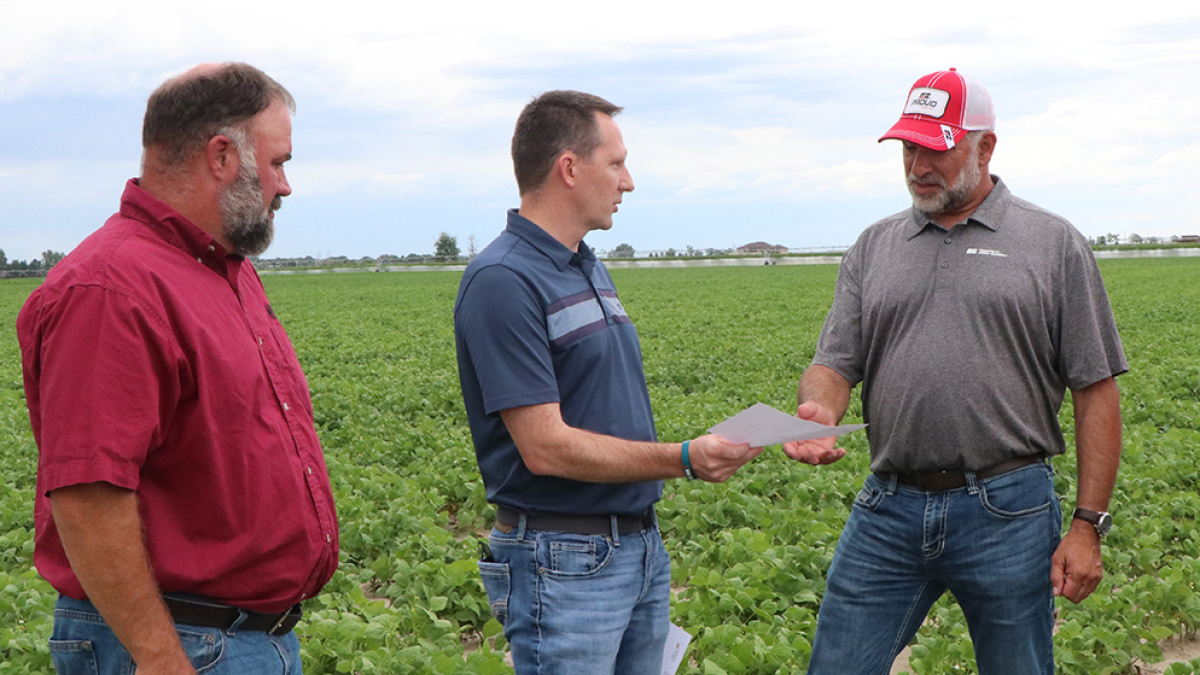
Lincoln, Neb. —The Nebraska Dry Bean Commission (NDBC) presented a check for $6,500 to the Nebraska Farm Bureau Foundation to support “Ag in the Classroom” on Thursday, July 27. Mark McHargue, president of NEFB, accepted the check and visited with members of the NDBC, the Nebraska Dry Bean Growers Association, and Kevin Kelley, CEO of Kelley Bean Company.
McHargue was in the Panhandle of Nebraska to visit with the dry bean organizations. Along with the presentation, the groups discussed the dry bean market. They all agreed the tariffs in 2018, while removed in 2020, were still affecting trade in their market.
“We put up a lot of politics in our industry, and politics probably have more to do with our markets than the market itself,” Kelley said. “We’re still suffering from those retaliatory tariffs with EU (European Union).”
The tariffs were part of the trade tensions between the United States and the EU in 2018. When the U.S. imposed 25 and 10 percent tariffs on steel and aluminum imports from the EU, they retaliated. The tariffs put U.S. farmers at a price disadvantage in international markets.
Unlike some other commodities, dry beans are a smaller market, and the growers and organizations rely on people like McHargue and the NEFB to be their voice.
“We have dry beans, we need to move our beans, and we do a good job of providing a good food source,” Hinman said. “How many people in our legislature would know what a dry bean is? The more voices we can get out there to help our growers move their product, the better we’ll be.”
The Kelley Bean Company is a processor in the Panhandle. Kelley said with an excess of beans, they need to get the beans to countries where there is a need.
“We need to get these excess beans out of our country. Our government needs to buy dry beans and help these people, starving across the world,” he said. “Programs exist for that, but right now, they’re not buying dry beans.”
The U.S., through the U.S. Agency for International Development (USAID), purchases food commodities and sends the food to countries where people are starving and in need.
McHargue, who discussed the situation with the organizations, said he was there to listen and, if possible, help Nebraska expand its market.
The group toured the dry edible bean plots at the UNL Panhandle Research Extension and Education Center in Scottsbluff. They also discussed the June hailstorm, which damaged or destroyed hundreds of acres of dry beans in the Panhandle.